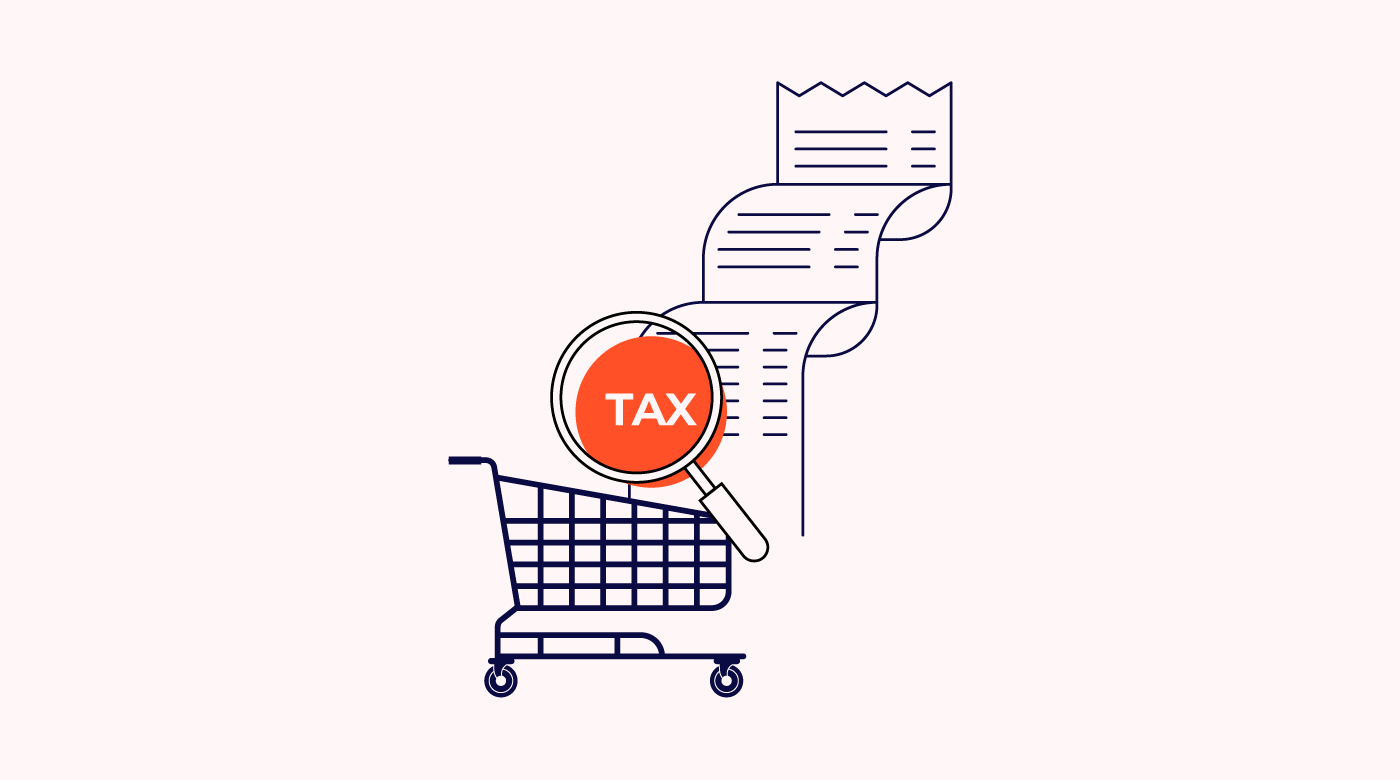In 2019, the ecommerce market was worth more than $9 trillion—and it’s only going to get bigger. Smart business owners are incorporating the ecommerce model into their business strategies, maximizing revenue and making it a little easier to run a profitable company.

However, you need to understand your tax obligations before jumping on the ecommerce bandwagon. No matter how much experience you have with online business operations, this guide can help you choose the right payment processor and comply with state and local tax regulations.
In this article, I’ll provide everything you need to know about collecting online payments and dealing with sales tax rules. Apply this information to grow your ecommerce business without getting bogged down in tax paperwork.
Choosing A Payment Processor
You can’t accept cash online like you do in person, so you need some way to collect payments before you start worrying about taxes. The first step is to find a payment processor or a service that transmits data to all the parties involved in a transaction.
If you accept credit cards and debit cards, there are four parties involved in every sale:
- Your business
- Your customer
- Issuing bank: The financial institution that issued the customer’s payment card
- Acquiring bank: The financial institution where you have your company’s bank account
Not all customers feel comfortable using payment cards to complete online transactions. Fortunately, many payment processors accept other payment methods, such as electronic checks, cryptocurrency, and direct debit. PayPal, Stripe, and Square are some of the most popular payment processors used to handle online sales.
Payment processor vs. payment gateway
To process payments, you also need a payment gateway, which is a tool used to encrypt financial data and let the buyer and seller know if a transaction has been approved or declined. If you’ve ever mistyped your credit card number at the point of sale, you probably received a message alerting you to the error. A payment gateway is responsible for handling those messages.
These are just a few of the top payment gateway providers:
- PayPal
- Stripe
- Skrill
- WorldPay
- Braintree
- Square
Improving the checkout experience
Choosing the right payment processor doesn’t just make it easy to comply with relevant tax rules. It can also improve the checkout experience for your customers, which may help you increase your retention rate.
Once your ecommerce site is up and running, it should make it easy for customers to access pricing information, collect only the amount of data needed to complete each transaction and protect that data from unauthorized access.
If you’re concerned about the checkout experience, check your cart abandonment rate. It’s typical for an online store to have some abandoned shopping carts, but a high abandonment rate may indicate that some aspect of your checkout process puts customers off.
Integrating payments with ecommerce suites
It’s also possible to integrate payments with your current ecommerce suite, eliminating the need to invest thousands of dollars in custom web development.
For example, Amazon Payments integrates seamlessly with Shopify, Magento, and Woo Commerce. These integrations make it much easier to collect online payments and remit sales tax as required.
Payment Processing Fees: Are They Taxable?
Whether you have a small business or a giant corporation, you need to compensate your payment processor for its services. The good news is these fees are often tax-deductible.
In the United States, the IRS considers payment processing fees a legitimate operating cost, so you can use them to reduce your taxable income. This is also true in Canada, with the Canada Revenue Agency allowing you to deduct management and administration fees, including bank charges which include those for payment processing, incurred while operating your business.
Your payment processor will generally send you all the relevant tax documentation you need, which makes it a little easier to determine how much you should deduct. However, it’s important to maintain your own records. If the processor doesn’t send you your tax forms in time, or if there’s an error on the form, you can use your records to determine the correct deduction amount.
It’s also important to consider that tax laws vary between countries. If you operate in the U.S., you should also know that every state has its own rules regarding the collection and remittance of sales tax.
Always refer to tax professionals and your country’s own guidelines. It goes without saying that the complexity, not to mention the variability, of tax laws is massive. If you want some backup, regardless of where you’re operating, consider taking a look at our picks for the best ecommerce sales tax software to avoid making critical mistakes.
Ecommerce Tax Rules: What You Need To Know
When companies first started selling goods and services online in the U.S., they only had to collect sales tax if they had a physical presence, or nexus, in the customer’s state.
For example, if a company located in New York City sold something to a customer based in Syracuse, New York, it would be required to collect sales tax. However, a 2018 Supreme Court decision made things a little murkier. South Dakota sued Wayfair for its failure to collect sales tax from its residents. Wayfair’s attorneys argued that the company had no physical presence in South Dakota, so it wasn’t required to collect sales tax there.
In Canada, all existing tax laws that apply to brick-and-mortar businesses apply to your ecommerce business. If you have a website that generates income, you need to report it.
Again, ecommerce tax rules vary between countries, and there’s rarely a one-size-fits-all answer. You should set yourself up for success and avoid issues by working with experts who can guide you through your jurisdiction’s tax rules.
Tips For Complying With Sales Tax Laws
To make tax compliance as painless as possible, follow these tips:
- Use ecommerce accounting software to keep track of how much tax you’re sending to relevant government agencies each year.
- Hire a tax professional to walk you through the requirements. Professional advice can help you avoid some costly mistakes.
- Make sure your ecommerce software integrates with your accounting software so you don’t have to spend time transferring data between the programs. Manual data entry takes up time and increases the risk of errors.
- Follow your country or state’s instructions for submitting your tax payments. If you don’t follow the rules, you may not receive credit for every payment, leaving your business struggling to catch up.
Don’t Let Taxes Burden Your Business
Nobody enjoys paying taxes, but it’s a necessary evil if you want to run a successful ecommerce business.
Thankfully, most ecommerce platforms and payment processors will help you handle them without sweating the small stuff.
For more tips on maximizing your revenue and keeping customers happy, subscribe to the Ecomm Manager newsletter.
More great ECM content:
- What Is A Payment Gateway & How Does It Work For Your Online Store?
- Ecommerce Credit Card Processing Guide: How To Set Up & Accept Cards
- How To Choose The Best Payment Processing For Your Ecommerce Business
- Buy Now, Pay Later: Should Your Business Use BNPL Platforms? (With Examples)
- How To Use Ecommerce Accounting Software To Maximize Your Money: Methods, Tips & Tools
ECM recommends:


